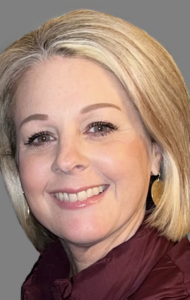Gain Confidence and Community at Singing River’s Ostomy Support Group

While there are nearly a million people in the United States with ostomies living full and active lives, an ostomy remains a major surgery that comes with a steep physical and emotional learning curve.
Is Your Ostomy Overwhelming?
Learning how to care for your stoma, change the pouch, and troubleshoot issues like leaks are all brand-new skills that take time and patience to master.
In addition to these physical challenges, living with an ostomy may cause mental stress, such as anxiety about how others will react, concerns about managing your ostomy in public or during activities, and fear of the unknown regarding potential complications or lifestyle adjustments.

Conquer Fear with Support and Strength from Fellow Ostomates
While fear surrounding ostomy is natural, don’t let it overwhelm you. One of the best ways to embrace life and build confidence is to get support from other ostomates. Wise and resilient, people with ostomies have faced significant health challenges and have taken the brave steps needed to improve—and often save—their own lives.
Ostomy support group meetings are a fantastic way for ostomy patients, loved ones, and caregivers to connect with one another, swap stories, ask questions, and become more confident.
Meet Alicia Steward, RN, CWON

Alicia Steward is a board-certified Wound, Ostomy, and Continence Nurse (CWON) who has been providing ostomy services, education, and support to patients at Singing River Wound Care Center for over two decades.
Recognizing the need for an in-person support group, Alicia has organized a new ostomy support group that will begin meeting in January 2025. We spoke to her to learn more.
What is the Ostomy Support Group?
The group is a resource for people who need ostomy support or additional resources to help take care of themselves or their loved ones.
My goal is to have a community where people feel supported. It feels very overwhelming for people after they get an ostomy placed. A lot of ostomy patients tell me that they feel like they’re alone, so meeting other people with ostomies will show them that they’re not.
There’s an experienced resource here for them that can help them take care of their specific need. I hope that the group will be a confidence builder and informative.
Who should come to the Ostomy Support Group?
Anybody that wants to come! Anybody that has an ostomy. Friends, family, caregivers. People who want to learn something new. Patients of all age groups have ostomies.
What will you talk about during Ostomy Support Group?
During the meeting a specific topic will be discussed with the opportunity to ask questions after the presentation. Attendees will also have the opportunity to share their stories, submit various topics they would like to learn more about, and talk amongst themselves.
The main goal is to be a resource for the people who come and who need support, additional education, and resources. Some topics we may discuss include:
- How to prevent pancaking
- How to choose correct appliance for your needs
- Stomal prolapse or stomal retraction
- Short gut syndrome and recommendations to decrease output
- Diet modification with ileostomy
What types of illnesses result in getting an ostomy?
An ostomy is usually done for patients with cancer, injury to the intestine, or certain bowel diseases. Some of the specific reasons for an ostomy are listed below.
- Colorectal cancer
- Bladder cancer
- Anal cancer
- Gynecologic cancer
- Stomach cancer
- Small intestine cancer
- Peritoneal cancer
There are other conditions that can make getting an ostomy a necessary intervention, such as:
- Inflammatory Bowel Diseases such as Crohn’s and Ulcerative Colitis
- Diverticulitis
- Ischemic bowel disease
- Bowel Obstruction
- Severe infections
- Injuries from accidents or violence
- Paralysis
Tell me about what you do at the Wound Care Center.
Colorectal surgeons will refer their patients to me prior to surgery to do stoma site marking and teach them about ostomy care. After their surgery, they are able to come see me as an outpatient for follow up care and appliance recommendations. We look at their skin and make modifications as needed. I also help patients with their supplies and help them with samples.
Why is having a board-certified CWON care for your ostomy important?
Registered nurses typically only have basic knowledge of ostomies. The CWON has expanded knowledge on this subject and has specific training required to perform detailed care such as stoma marking, monitoring, appliance fitting, and complication management. We want to make sure that our ostomy patients have great follow-up care and the best experience possible.
2025 Ostomy Support Group Meeting Schedule
We welcome you to join us! The Ostomy Support Group will meet at 5:30 PM at Ocean Springs Hospital’s Board Room on:
- Friday, 1/31/25
- Friday, 2/21/25
- Friday, 3/21/25
- Friday, 4/18/25
RSVPs are encouraged but not required. Let us know you’re coming!
Learn more about Ostomy Care Services at Singing River Wound Care Center
Singing River Wound Care Center provides comprehensive outpatient ostomy services for patients before and after surgery. Our board-certified Wound, Ostomy, and Continence Nurses work as trusted care collaborators with colorectal surgeons to provide the best outcomes for our patients.
Ostomy Care Information